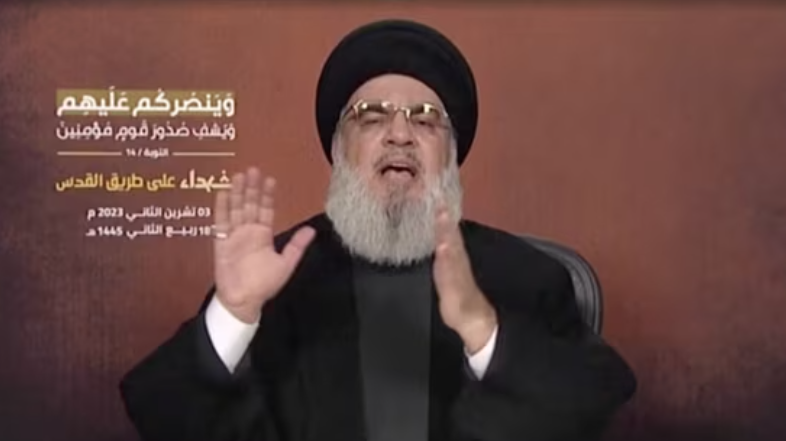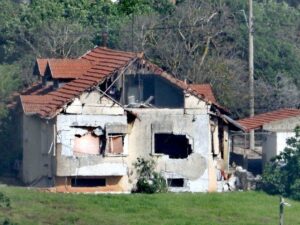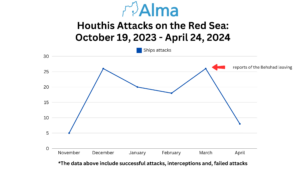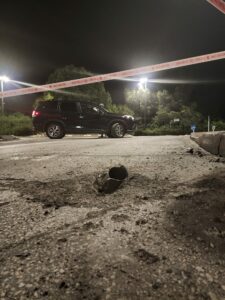
Shabbat Shalom, everybody. I want to say a few words about Nasrallah’s speech. Here are some quotations from the speech before giving my interpretation (and I’m paraphrasing).
In an hour and a half of speech, Nasrallah denied any connections to the atrocities that were made by Hamas on October 7th. I believe he’s lying.
He gave compliments to Yemen and to Iraq for their entrance to the campaign. With regard to Iraq, I’m not sure whether he meant only the attacks against the United States in Iraq or maybe there is something else behind here.
He said that the victory of the Palestinians is an interest of all the countries in the region, first and foremost a national interest of Lebanon.
Nasrallah made it very clear that Hezbollah entered this campaign long ago and made it very clear that its very limited participation can expand.
“What is happening on the Lebanese border with Israel hasn’t happened since 2006. Everybody on the border is exposed to the daily attacks of Hezbollah, of the communities, and the IDF posts against tanks, UAVs, soldiers, and positions and infrastructures. Hezbollah is carrying out war on this border and those who are on the border are aware of that.”
Hezbollah claims that Hezbollah succeeded in reducing the IDF forces that are attacking Gaza since they had to stretch and send double the forces on the borderline as well, and he views the evacuation of 60,000 Israelis from the borderline with Lebanon as an achievement.
He emphasized that all possibilities on the Lebanese front are open, meaning he will decide when and how to expand if need be. If we go to interpretation, I can say that we can view this speech in two ways:
One way is to say that Nasrallah is afraid to enter into a full-scale war with the State of Israel, yet he is committed to taking part in the campaign and that’s why he’s preserving the situation of a low-scale war.
I personally believe the second option. I believe that if I look at the policy of Hezbollah on the borderline in the past year and a half, and then to add what just happened, I think that Hezbollah wants to drag Israel into war rather than initiate the war by itself, as Hamas had done. The legitimacy inside Lebanon is very important for him, especially in his own base.
I think that Nasrallah is no less cruel than Hamas, is just more sophisticated in any case. I also think a part of what he said is right, the reality on the northern border of Israel today is an unbearable reality. It’s a reality that Israel will not be able to accept for a long time. Israelis will not be able to accept the situation that 60,000 people who were evacuated from their homes will not be able to go back. We will not tolerate the situation.
The anti-tank missiles launched every day against our communities and soldiers on the border. We will not tolerate the situation that we cannot drive safely in those areas that are this part of the state of Israel. And that’s why I think that the bottom line is that once we are done with Gaza and once the campaign in the South stabilizes (not even saying completely), Israel will have to find a way to deal with Hezbollah and Nasrallah knows that. That’s why he talked about the option of expansion of the war as very realistic. He put Israel in a situation that is unbearable, a situation that Israel will not be able to tolerate for a long time. And I think this is exactly what he planned to do and this is exactly what he wanted to achieve.






